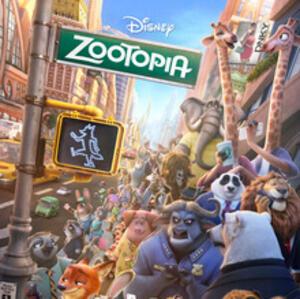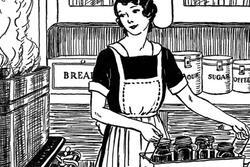A Feminist Tail Fur All
As the oldest of three children, I often see movies directed towards a younger age demographic with my family. For my sister’s ninth birthday party, we took her and a couple of friends to see Zootopia. I walked away from the movie feeling excited, and proud of Disney for their newest movie. The story follows a bunny rabbit, Officer Judy Hopps, who has worked her entire life to become a police officer and “make the world a better place.” Because Hopps is a bunny she has to work twice as hard to be taken seriously as police officer, and she does! Shakira’s song “Try Everything” is played multiple times throughout the movie, and promotes the message that you should always try, even though you could fail. I walked away from the movie thrilled that my little sister now had a fun new movie to watch that also has such a strong feminist message.
As I thought more about the movie, I realized that I was disappointed by the way other characters were portrayed. Judy Hopps breaks numerous stereotypes about bunnies (read: “women”), but most of the other animals are portrayed in, I would argue, a stereotypical way. Maybe this was to be expected since Zootopia is a fictional representation of our modern, yet patriarchal society; nonetheless, it was disappointing to me that there weren’t more strong, stereotype-smashers for a young audience to look up to.
Nick Wilde is one such character. When we first meet him he’s working as a con artist. He’s a fox, so people, including Officer Hopps, assume that he’s untrustworthy. Later in the movie they start working together to solve the case of the “missing mammals,” which forces Judy to examine her own prejudices. As they get to know each other, Judy learns that as a child Nick wanted to be Junior Ranger Scout, but at his first meeting, the other scouts ridiculed and muzzled him just because he was a fox. After that experience, he conformed to the stereotypes assigned to foxes because he didn’t ever want to feel vulnerable again.
It’s understandable that Nick initially works within the inequitable system to try and achieve success in any way that he can, but it’s also inspiring to see him challenge classic stereotypes about foxes by becoming a police officer at the end of the movie.
Nick’s story resonates with me because there’s a parallel debate within the feminist movement about how to balance operating within the patriarchal system to achieve our goals, with working to dismantle it. I think that working within the system tends to be easier, but, as we’ve seen time and again, women can only get so far this way. As long as the patriarchy exists there will always be a glass ceiling, so I believe that the only way women can truly obtain equality and succeed in the long run, is by constantly chipping away at this system, with the greater goal of ultimately dismantling it.
Overall, I really enjoyed Zootopia, and I hope that Disney continues to make movies like this that confront stereotypes. Since Zootopia came out, it has become even more important, because of the divisive nature of our country, for youth to have movies with positive feminist messages, as well as messages about many types of people (or in this case animals) living and working together. Both Zootopia and America have a ways to go, but I think that this movie is a good start.
This piece was written as part of JWA’s Rising Voices Fellowship.








This is so interesting! Love the title too!!
I think you need to see the pieces that read as stereotypical as a commentary on implicit bias. Judy struggles to overcome her bias, but even she feels the need to have Fox Spray.